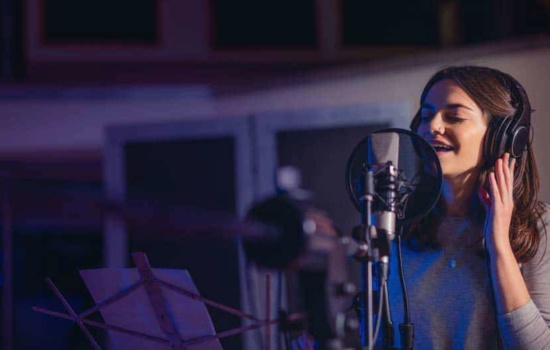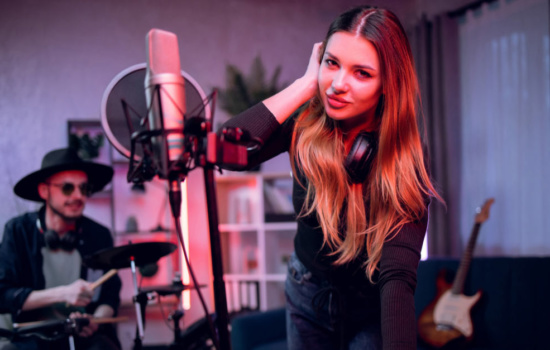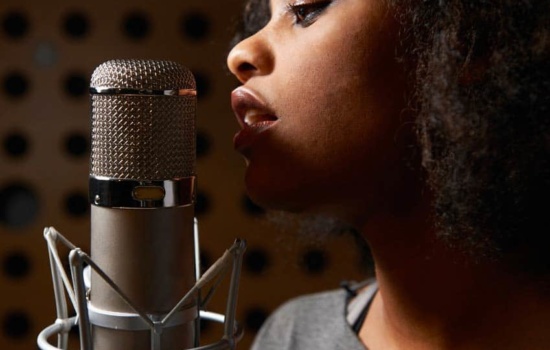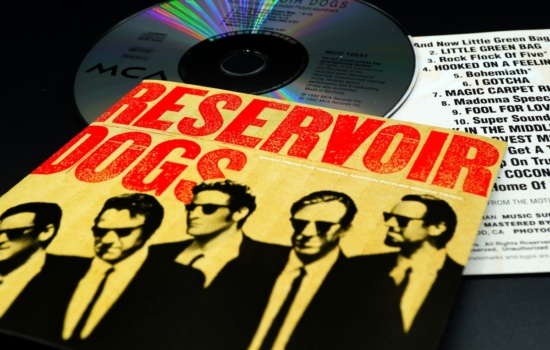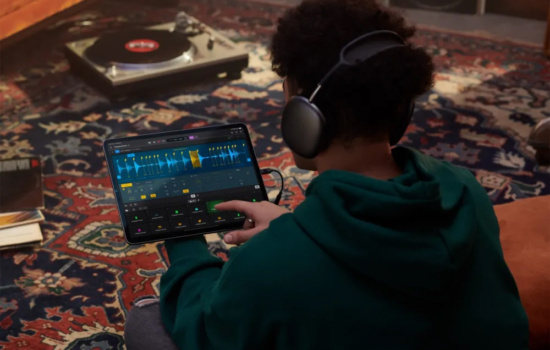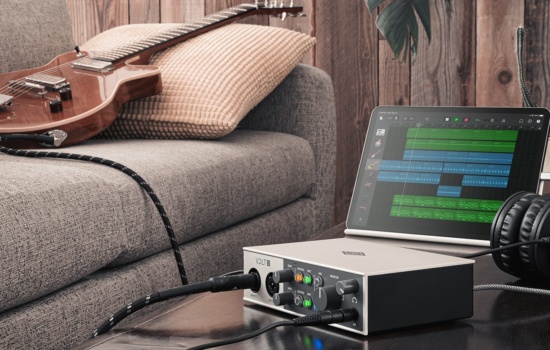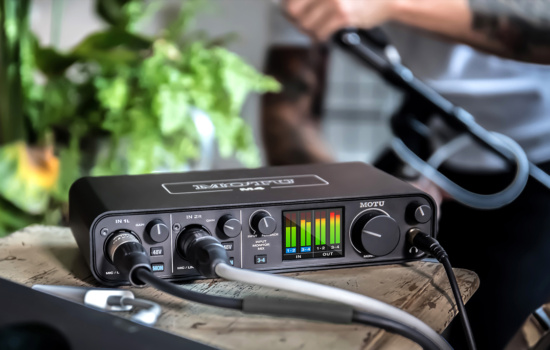Music Supervisor
Career Overview
Music Supervisors find and license music to set the mood and convey emotion in films, commercials, video games, TV shows, mixed media, and for events.
Alternate Titles
None
Salary Range
$3K to $5K per episode

How To Become a Music Supervisor
People also ask
Career Description
Music Supervisors find and license music for use in TV shows, films, video games, theater productions, and commercials. They work for clients, usually Showrunners (TV Creators/Producers), Directors, or Movie Producers, and Music Video Directors, to choose just the right music for syncing to TV programs, films, and other visual media. Sometimes Music Supervisors need to work with District Supervisors, Licensing Representatives, Composers, Songwriters, Lyricists, Producers, and musicians to create new pieces of music to be used for a specific scene.
An important aspect of being a Music Supervisor is handling music clearances and all the legal aspects of securing song rights, which includes overseeing completion of mountains of paperwork. The job requires a full understanding of how music publishing, sync rights, and music licensing work. Many aspects can be very complicated, and the role requires excellent organizational, communication, and negotiation skills.
Music Supervisors need musical expertise and knowledge, and they also have a sophisticated knowledge of music licensing and synchronization rights. There are many permissions to be secured, and there may be more than one owner of a copyright. For example, a record label may own the master rights to the recording while the Composer owns and controls the copyright for the song. To identify and use the perfect song or composition, not only does it need to be a perfect fit for a scene and create the perfect mood, but it must also be available for licensing and at a cost within the production’s budget.
Music Supervisors oversee the administration of the song placement and may be responsible for tracking and issuing payments to the copyright owners, whether artists, record labels, or Music Publishers. They may also be responsible for placing the end credits in films and trailers, or even collecting royalty payments. In musical theatre, a Music Supervisor might manage a team of Music Directors working on several musical productions at the same time.
Supervisors often propose previously recorded songs to the Director or Producer of a movie, TV show, advertisement, video game, or other visual media. They act as liaison between the creative and business sides of the production. This means getting the music approved, asking the rights holders permission to use the song, creating master recording and sync licenses, and managing financial details so that it meets the production’s budget requirements.
Typically, artists are given the chance to accept or reject use of their songs and will also have a say in how the song is used. Music Supervisors also must interact with performing rights organizations (PROs) like ASCAP or BMI in their daily work.
Music Supervisors occupy a powerful position in the music and entertainment business, because getting the right music cues for a show or movie can elevate it to greatness, and having a song placed in a highly successful movie, show, or video game can push a Songwriter or performer into the public eye and help them to achieve fame.
To learn more about what it’s like to be a Music Supervisor, we talked to:
- Zach Cowie (Master of None, Judas and the Black Messiah, Little America)
- Frankie Pine (Big Sky, The Flight Attendant, The Newsroom)
- Amanda Krieg Thomas (Ratched, American Horror Story, Pose)
What does a Music Supervisor do?
A Music Supervisor basically works across every musically related element on a film or a television show. It looks different project by project and depending on the relationship with the Showrunner or production team, it can include anything from listening to music and pitching song ideas for scenes, to working closely with the Editors on how to cut those songs to scenes. It can include hiring Composers or working with them on the score. It can include hiring Music Producers and Songwriters and Arrangers, Orchestrators, all that type of stuff. It can involve listening to song and episode or film mixes, helping guide how loud or soft things should be.
If there are any on-camera performances, it involves working closely with the Director and production team to get those going. You’re talking to Props. You’re talking to Sound. You’re talking to Costume to make sure anything performed on camera is all buttoned up and getting any information back to the post-production team and Editors to put into picture.
Then it’s a lot of administrative work. Clearing (in other words, obtaining the rights to use) the songs everybody loves. More often than not a song can be owned by multiple people or companies, so you have to make sure all the ownership percentages add up to 100% and all paperwork is buttoned up–and there is a lot of paperwork! Music cue sheets with the score and songs in the show. Confirmation letters. Sometimes licenses and issuing payments.
It’s taking a project from the beginning to the final sound delivery and making sure anything related to music goes off as smoothly as possible.
Music Supervisors come up with the musical direction of a film, television project, or any other kind of media outlet.
Usually, once you’re working with the Producers or a Director, you come up with a musical direction. Like on The Flight Attendant, we decided that most of the songs were going to be very female-driven to exude our lead character’s personality. We then started sending songs that fit that mold. It’s all based on scene; it’s based on the vibe, the feel, and the style that fits a particular scene of each episode.
It’s very different depending on the project. Some stuff is pretty hands-off and some is very hands-on. Your kind of day really depends on where the various projects are at. I’ll have slow days, then I’ll have a day where two movies I’m on are about to mix and I have to do spotting on a show, which is watching an episode with everybody and identifying places that need music and coming up with ideas. There are slow days, then there are eighteen-hour days.
Managing the workload and knowing when you can’t take something else on, that’s a big lesson I’ve learned. Master of None is so involved musically that I only did a couple other things the whole year we were working on that show because I really did work on it every day. On the other side, I’m working on two movies and a runway show right now.
You are hired to give your input on the musical choices made in score–in which Composer you hire to do original music for a show or movie–and you have some input in working with the Director and Producers in guiding Composers to what sound you want.
But your biggest job is to source, which is to find and license preexisting music for film and TV. On a show like Master of None, we’re almost entirely sourced and have very few composed cues so I just come up with tons of ideas for these scenes. Then I work with my Co-Supervisor on the show–her name’s Kerri Drootin–and the two of us (mainly her) work to license the music so we can use it.
That’s sort of the biggest thing for younger people to put on their radar: it’s not the dream job people think it is. Thinking of the music is amazing and so fun but there’s a lot of compromise involved and a lot of people who need to sign off on this stuff. The actual licensing of the music is very difficult and that’s the stuff I suggest to younger people to start getting their head around soon.
A recording is broken down into the master side and the publishing side and you have to do deals with the record labels for the master side and the publishing side for the publishing rights. It’s not easy.
What is a Music Supervisor's training?
I don’t think college is necessary for the gig, but if you’re in college and you’re like, “What do I take classes in?” I’d say, if your school offers anything related to music business, that’s helpful to take. Even broad music business classes will cover the basics of sync licensing. And of course, classes related to music licensing and publishing if they’re offered.
If you go to a school like I did with zero classes on music business or music supervision, any practical film classes will be helpful. I never took any and I moved here being like, “I don’t know how to make a movie.” I think that understanding the basics of how films or TV shows get made will be absolutely helpful to your vocabulary. Same with music. Any basic music production classes will be super helpful with the vocabulary that people use. I’d also suggest any classes related to communication or negotiation. We do a lot of dealmaking at various levels, and I regularly think about taking classes on negotiation myself.
I studied theater and was a Stage Manager, and of everything I studied in college, I’ve found that those skills come into play the most regularly. I don’t think someone who’s not already studying theater needs to go and take stage management classes, but the skills I learned in that go back to what I was saying earlier about being detail-oriented, being super organized, and that’s where I learned a lot of my communication skills. I really developed those over the years, and the first place I got those was doing stage management in college.
At that time, I didn’t know this was what I wanted to do. They also really come in handy for coordinating on-camera performances. There are of course specifics to the recording and the process of filming music that I learned over the years on the job, however, I worked on the musical The Prom last year, and found that skill set of stage management directly translated to what I was doing on that project.
In hiring, at least for me, it doesn’t really matter what kind of degree you have as long as you’ve put your time into college and you’ve got yourself a degree. If you’ve focused on business, music, or some kind of communication aspect, that would be nice. But I’ve found that the better you are with people, the easier it is for you to manage this job.
I usually look at where my Directors or where my Producers hail from. Like, where were they born? I have a sociology degree, so for me, I want to know about people because where you grew up is kind of like your musical space. It’s what you like to live and breathe. I find that it’s always helpful to get inside the head of who you’re working with.
Salary
Most Music Supervisors work as freelancers on a per-project basis. They may have their own company, but they are still getting paid by the project. They receive a set fee for film projects and if they work in television, a fee per episode.
It’s difficult to tabulate a specific income range that would apply to most Music Supervisors, but annual earnings could be around $35,000 on the low side for someone starting out as an employee in a firm and rise to as much as $250,000 for a freelancer working on feature films for a major studio.
Sometimes, Music Supervisors continue receiving payments through soundtrack royalties. Even if working in an agency or company, their salary could be tied to the annual earnings of the company and their output. Music Supervisors always need to execute a contract before starting a project, outlining all expectations, responsibilities, and payments.
How much does a Music Supervisor get paid?
Depending on the length of the series (half-hour or hour) and other factors, a typical episodic fee for a major television series can range anywhere from $3K to $5K, with outliers on either end. With the number of episodes in a season getting shorter and shorter….independent Music Supervisors have to take on a lot to make a living.
While there are always exceptions, being paid per episode is typical in television. Fees for films vary even more widely, with indies paying a couple thousand (or less) and fees for big-budget studio films sometimes getting into the six figures if it’s a music-heavy project, like a musical. It also varies depending on experience, but probably not as much as one would expect.
Hey, what do you think about trying our new Music Career HelperMusic Career Helper really quick? It’s totally free and could help get your career moving fast! Give it a try. It’s totally free and you have nothing to lose.
Career Outlook
Since the 1980s, the demand for Music Supervisors in the production process has continued to grow with the popularity of media soundtracks. The emerging need for selecting and licensing songs led to the steady development of the position of Music Supervisor. Music Supervisors have become even more important as the musical component of visual media became part of the marketing strategies of media and video game companies. Movies and games sell better when they have a hit song contained in them.
Synchronization licensing has allowed artists to earn more money while gaining exposure to a much larger audience. The expansion of video technology, streaming, social, and other technological advances in media marketing and distribution has led to increasing demand for Music Supervisors. For these reasons, the job of Music Supervisor continues to grow.
Institutions such as the Guild of Music Supervisors promote the understanding of music supervision, granting awards for excellence and encouraging other institutions to recognize and acknowledge the contributions and accomplishments of Music Supervisors. Music Supervisors play an increasingly integral role in the music, film, and entertainment industries.
Career Path
There isn’t a set job description for Music Supervisors. They come to the job from a variety of music-related backgrounds and fields, and include musicians, Music Directors, DJs, Music Publishers, Managers, Agents, Radio Promoters, Licensing Representatives, filmmakers, and even Entertainment Lawyers and Music Writers (Critics). They share a passion for music and for film, TV, video games, and all types of visual media.
Music Supervisors might start out working in a production company, film studio, broadcast network, or music supervision company, and do freelance work. A Music Supervisor could also get their start working for a music library, a technology company, or a large publishing company where they can learn all about how music gets licensed for use in film and visual media.
They could pursue an internship to gain experience in any of these related areas, as internships with Music Supervisors are rare. Aspiring Music Supervisors should plan on getting at least one internship for about six months, as this is one of the most common ways to secure a job. Employers and clients want to see a track record of working and be able to ask for references from former employers.
Once someone has landed a role, advancement means working on higher-profile projects. An example of this would be someone who served as a Music Supervisor on student films in college later moving into indie films and eventually getting hired to work on a TV show or film associated with a major network or a famous Actor, Director, or Producer.
The field is open to people from a wide variety of backgrounds, and there are terrific opportunities for career advancement. At the same time, it’s a small field, so it remains highly competitive. Being in a large city with music and entertainment outlets will allow for networking and chances to get a foot in the door to work.
Although the process of landing a job seems mysterious, since there aren’t many job postings online, it’s possible to connect with indie and low-budget filmmakers looking for music supervision. Working on these films is a good way to show what you’re capable of, grow your industry network, and have a finished product that shows off your work.
Student films also can benefit from having a Music Supervisor on board and working with college-aged Directors on their films is a great way to expand one’s music supervision portfolio and meet people coming up in the world of film and TV. In short, this is a career where being entrepreneurial and making your own opportunities matters more than in other roles where one can just search for positions and apply online.
How do you become a Music Supervisor?
The way a lot of people become Music Supervisors is by working under a Music Supervisor, whether that’s independent or in a film studio or production company. It’s very much an apprenticeship-type job. What you hope the trajectory is is that when you work with someone long enough and that trust is built up, they start sharing their credits with you and start passing projects along to you that they don’t have the bandwidth for, and then you’re building credits as a Music Supervisor on your own. Eventually, you start being known and hired on your own. That’s how a career often evolves.
I also know people who have never worked for a Music Supervisor. In those situations, it goes back to networking and putting yourself out there. A very good friend was working for a Showrunner and he was just telling anybody who would listen that he loved music and wanted to be a Music Supervisor. Then his peers started making movies and were like, “You’re the music guy, right?” and started calling him. Then they made their next movie with a bit more money, and then they made a TV show, and then this person grew their career that way. It was very networking-based.
Networking and relationships are really the way to do it. With the one caveat being that you always want to be careful: if you get hired as a Music Supervisor without knowing anything about music clearance, you could be putting yourself in a bad situation. Not properly clearing a song could lead to the production getting cease and desist letters, getting sued, possibly having to change music after a film is done, which is very costly–any number of problems. It can blow up in your face. If you’re someone who’s a quick learner and you find at least one person who’s willing to answer those kinds of legal and clearance questions, that’s definitely what you need. You don’t necessarily have to work under somebody, but it is one of the ways to do it.
In addition to that, there’s a wealth of different jobs in the film and TV music licensing world. When people think of Music Supervisors, they think of record labels or maybe Publishers. Within those record labels and Publishers, they all have distinct departments that pitch music. And there are companies that are mid-size or small that just pitch music for film and TV. I know a lot of people who want to be a Music Supervisor who got their foot in the door with one of these companies and then ended up really liking it.
I tell people that if one of the things you love and that draws you to music supervision is the artists or songwriters, you might want to think about working for a label or a publisher. In those positions, you’re working much more closely, regularly, and directly with artists who are interested in getting music into film and TV. Even if you decide that you don’t want to stay in publishing, you can get a foot in the door that way.
It’s a very small community. Some of my dearest friends over the past 15 years work at labels and Publishers and do clearance. They’re not just Music Supervisors. We’re all talking constantly. We’re all very close. In times where there’s not a pandemic, we’re socializing regularly.
One of the great places to start is sending out resumes. But UCLA and USC have great programs. They have classes that you can take for music supervision.
There’s also the Guild of Music Supervisors—they have a volunteer program. The Guild of Music Supervisors host a lot of events, and if you volunteer, you’re automatically around Music Supervisors. You can chat them up. You can let them know that you’re interested in interning, interested in being an Assistant, interested in just shadowing a Music Supervisor for a day.
We’re pretty friendly people. Get into the mix. We all talk to each other … I have so many people that come to me and they’ll say, “Hey, do you have any Interns that are ready to become Assistants? Because I’m looking,” and vice versa. I’ll do the same thing whenever I’m looking. So if you can, go and volunteer at any of the guild events. It’s a great place to meet and greet and be around Music Supervisors. It’s a great way to get your foot in the door.
Everybody can listen to music and develop some sort of taste but the thing that’s going to get you the job is an understanding of the licensing and business side.
If I could do it all over again, I’d intern at a Publisher’s for a while. If you want to get into supervision, that’s one of the strongest first moves you can make: spending time at a Publisher’s and understanding the back end of this and how it works.
Just study the shit out of all music. I was talking to another Writer earlier today and he used the analogy of picking music as being like painting: the more music you know of, the more colors you have to work with. Because this job really isn’t about your favorite music, it’s about serving the scene in the best way possible.
Your job then becomes to find the good version of that song. In researching music you’ve got to be able to separate the good from the bad and you gather a range of knowledge. We throw genre out the window. I wouldn’t be able to do this job if I didn’t spend twenty years researching music.
Study music. I’m thirty-six so when I was learning about music in high school it was impossible. I’d go to the library and check out Mojo magazines and read as much as I could find. As a kid, I really struggled to find other people who were into the same stuff as me so I didn’t have a community. It’s so easy now to find a community and find out what you’re interested in.
The history of how things sound right now is traceable and learnable and that should be your number one thing: to learn the greats. I think it’s great that kids are listening to really weird records but you should also have every Beatles record memorized. You can’t let go of the roots of this stuff.
If something has been determined to be great, even if you don’t love it you should know about it because it’ll inform everything after it. The danger of not knowing your history is being redundant and when I’m talking to a younger person who’s trying to get into music, the first thing I’ll look for is the depth [of their knowledge].
On that same note, [have] an appreciation for film and tv. Again, I’m not a big TV person but the way people are making TV right now, you might as well just study movies.
It’s important to have your mind blown a bunch by other people who have done this job and I’m always looking at that and reviewing scenes that have inspired me to make sure the stuff I’m trying to do can sit next to them but that it’s adding something else–so I can make sure I’m not ripping something off. I’m a freak about history.
If you want to work anywhere in music, go through the Time magazine Top 100 Films and watch them all. Those are some of the best ways to use your time until you end up in the place you want to be.
Experience & Skills
Most people think that the main requirement for success as a Music Supervisor is having a passion for and great taste in music. This isn’t really the case. The top skills for Music Supervisors include organizational, communication, and administrative skills, as we shall see.
Music Supervisors do need to have a deep and broad knowledge of music across many genres, and especially the history of music, to consistently provide the best-suited music for each show and scene they are working on. That means finding the right music for the scene, and not necessarily the favorite music of the Supervisor.
Knowing the roots of a wide variety of musical styles is crucial and having a knack for finding just the right music is key. Different kinds of media use music differently, so the Music Supervisor must know what is required and then go out and find it. The tastes of the Director or Producer may come into play, but ultimately the Music Supervisor must do their own musical research and find the right music that fits the project’s budget and is available for licensing.
Knowledge of legal aspects of music is super-important, as are deal-making and negotiation skills. Music Supervisors must be familiar with the various statutes that affect music licensing and clearances, and be very careful not to make mistakes, which could be costly or lead to lawsuits if clearances and contracts are not handled carefully.
Having good networking skills is a must, as most opportunities arrive by word of mouth. Students can volunteer to work at conferences such as for the Guild of Music Supervisors, which also offers educational and professional resources for anyone looking to break into the field. Another way people get into music supervision is by working at a music publishing house, a performing rights organization, or in the music industry as a Producer, Agent, or Manager.
While it’s helpful to have musical skills and knowledge such as reading, writing, and performing, it’s more important to have a broad knowledge and familiarity with musical styles, artists, production, and music business topics. Being a good communicator and understanding all the legal aspects of how music is bought, sold, licensed, and protected as intellectual property is crucial; having a legal background could also be helpful.
Understanding how the film and TV industries work and broad knowledge of films and shows will be an asset to anyone seeking to become a Music Supervisor. Having great connections and the ability to see a project through to the end are also important qualities that contribute to the likelihood of success. Finally, knowledge of the technology used in recording and syncing music to video could be very helpful to Music Supervisors in training.
What skills does a Music Supervisor need?
A lot of people assume it’s having good taste in music, and it’s really not. I think communication skills are really critical. You have to know how to have respectful, clear conversations with the people you’re working with.
You are the liaison between two groups of people who don’t totally understand the other side. On one side you have labels, Publishers, and artists who have their own agenda. On the other side, you have Directors, Producers, production companies, and studios who also have their own agenda and priorities.
So I think people who are really successful know how to speak to both parties and know how to share good news, share bad news, and along with that, they know how to be a creative problem solver. Sometimes you can’t get a song a Director really wants, so then what do you do? How do you handle that situation? Knowing how to do that is sometimes more important than the actual music you might be sending.
Being resourceful is also important. Knowing how and where to do research. Whether that’s creative research like looking for song ideas for a specific spot and needing to think outside of the box, or you’re trying to find out who owns a particular song your Director loves, research skills are really important.
Organization is also key, especially when you’re coming in the door and just starting off. A lot of the support positions for Music Supervisors are heavily administrative and require excellent organization skills and the ability to be incredibly detail-oriented. You’re tracking a lot of information. You’re tracking audio files. You’re tracking clearances, which are a big deal because if you’re missing a small percentage of a song, all hell breaks loose, basically.
Does the paperwork add up to 100%? Did someone cross out–or add–important language to the contract? Is there a scene requiring music shooting next week? Did they add a character quoting song lyrics in the latest script revision? Especially for those just starting off, you really need to have organization on lock.
A Music Supervisor needs to be organized more than anything else. You have to have the ability to keep track of where you are at all times: what music you submitted, where you’re at in the process of each episode, where you’re at in the film process, where you’re at in the clearance process, where you’re at in all aspects of the musical journey of a particular project. That’s probably the most important aspect: being organized.
There’s definitely an aspect where you have to have a knowledge of music, and obviously, a love of music. One of the things I always say to the people I have working for me is: I want you to bring something to the table that I wouldn’t bring to the table. For me, I’m obviously older than some younger person that’s going to come and work for me, so my knowledge is of the decades of older music that I’ve experienced.
There are things that I might not be so familiar with, like what’s happening that’s new. I want somebody that’s going to bring something new and interesting to me. Maybe it’s Latin, maybe it’s hip-hop, maybe it’s trap music, or maybe it’s a brand new thing that’s happening right now that may just be off my radar. So, I think it’s just about bringing something new to the table. And obviously, it’s gonna depend on the Music Supervisor that you’re interviewing with.
I think what has helped me a lot is I can be pretty flexible. Something you need to recognize when you do this job is it’s not about your favorite music. That’s the thing to learn; your mixtape is not going to show up on the show you work on. It’s a compromise of so many factors and opinions and on a show like this, you’re speaking to a really big audience so you have to bend.
I DJ a lot and every once in a while I get stuck doing something I don’t want to DJ, like a premiere party instead of the clubs I’m used to, that’s a ton of random people and if I were to do songs I liked, no one would have fun because they wouldn’t know a song I’m playing. You get into a groove and you have to do one for them, two for you, and you keep the door open.
That’s a real key to the cues of this show–on the music side there are these sort of landmarks in it, then we can start to stretch. Even if you go through the season it gets significantly deeper towards the end than at the beginning and all that comes from taking myself out of it and thinking about what’s best for the show.
There are some movies that I’m on where it’s just me but I’m talking to other people every day. Some stuff I do in front of my computer and some I have to be in an editing room. It’s really case-by-case and I think that comes from being in a career that’s so new; there’s no real defined way of doing things. I think my flexibility helps with that. I’m prepared to give as much as needed.
A big event for me is on Sunday when I’m putting the schedule together for my week; since it is so new it is very self-managed. I think those are skills that are both really important: being self-motivated and managed. It’s worth mentioning there a lot of people trying to do this job right now so if you start to slip they can replace you really quickly, so you have to be self-motivated and self-managed.
Education & Training
There is no set educational or career path to become a Music Supervisor. Educational backgrounds range from Bachelor of Fine Arts in music to business degrees to no higher education at all. Since there are no degree programs in music supervision, aspiring Music Supervisors will have to find their own educational route to learning what they need to know.
Some colleges and universities do offer courses in music supervision. For example, NYU Steinhardt’s Music Business program offers a course titled Strategic Music and Branding, while Berklee College of Music offers an online professional certificate in music supervision, open to anyone, comprised of five courses for a total of 15 credits. Berklee’s courses cover most, or all aspects of music supervision and they offer strategies for recognizing and leveraging
professional opportunities.
Look for college majors related to the film or music industries and seek out internships that provide on-the-ground experience. It’s important to study music business and trends and to develop strategies as you learn about the critical areas of the industry. This includes best practices in music publishing, licensing, marketing, promotion, and understanding current issues facing musicians, entrepreneurs, Managers, Film Directors, and other music and entertainment professionals.
Whether in college or otherwise, studies should focus on practical aspects of the music, mixed media, and film/TV industries, such as how content is produced and monetized, how revenue streams are generated, music placement opportunities, budgets and financial management, clearances, copyrights, infringement, intellectual property (IP), business planning, advertising, and other current issues.
In the end, Music Supervisors are responsible for combining music and visual media, with attention to all the details involved with that. They need to be super organized with their time, know how to write a proper email, and be able to plan their work independently. These are learnable skills for anyone. What’s needed beyond the basic music knowledge is organizational ability, administrative skills, and clear communications. Learning to use spreadsheets and other administrative software and being a good problem-solver is as important as the musical knowledge you bring to the job.
Music Supervisors need to meet the needs of the Directors and Producers as well as the musicians, Composers, Songwriters, and their management and labels. This means bridging a significant gap between the two sides, while also bridging the gap between the creative and business sides. It’s an increasingly important role in the music and media entertainment industries.
What qualifications do you need to be a Music Supervisor?
Everybody I know has come at it from a different point of view. I know people who have been music lovers their whole life and that’s kind of what got them in the door—and they knew somebody who was looking for help with music. For better or worse, getting in the door at a lot of entertainment careers involves knowing people.
If you can get internships, that’s a really good starting point. Any internship in music, preferably something administrative, is always something people look for on a resume. If that’s not possible, anything in entertainment would suffice. One of the very common ways to get a foot in the door in the entertainment industry as a whole was to get a job at an agency. I think that’s also a helpful qualification for getting a foot in the door in music supervision.
A lot of the support positions in the field are administrative, so a lot of times Supervisors are looking less for people who know how to use ProTools, and looking more for people who know Excel or Google Sheets really well. Any job that gives you those types of skills—administrative, organization, spreadsheets, filing, how to write a cohesive and coherent professional email—any of those jobs will come in really handy in music supervision and help you get a foot in the door.
Of course, that’s assuming someone wants to take that route of working in an Assistant type role for a Music Supervisor and working their way up. It can be tricky. There isn’t really a ladder. How you make the jump is you just start getting Directors or studios to hire you as a Music Supervisor, and then you’re a Music Supervisor.
With that in mind, one other skill or qualification would really be networking. So you need to know people that have leads, and the more people you meet, the more people that know you’re looking for a gig as a Music Supervisor, the more likely you are to be hired.
Back to what we talked about earlier about touching every aspect of music on a production–many filmmakers don’t really realize that is part of the gig. Most of the first jobs I got were from people making films who were like, “You’re a music person. You know how to clear songs. Can you help us?” and that was all people knew about the job. A lot of people still think that’s the job. But the more you do it, the more you understand that it’s so much more.
Another qualification is that some legal knowledge as it pertains to copyright, IP clearances, or music publishing is helpful. My first job was working for a Music Lawyer at a film studio. That very basic understanding was a helpful foundation going into other jobs. It’s not critical to have a law degree or even to be a Paralegal, but some understanding of that would be helpful on a resume.
They absolutely have to have internships–internship with a Publisher, internship with a label, internship with another Music Supervisor. I feel like if you can get a good six months under your belt with a Music Supervisor, you’ll have a good handle of what the job is.
That doesn’t mean that you can immediately become a Music Supervisor, obviously, but that means that you’ll be a pretty good Assistant to a Music Supervisor. And then you move from there. The next level is being a Coordinator to a Music Supervisor, and then, after Coordinator is basically becoming a Music Supervisor yourself.
It’s worth noting that I got kind of super lucky and just fell into this. I worked at record labels for about ten years straight. Out of high school, I was working at record stores and I started at labels by the time I was nineteen. So, in doing that, I was able to learn a lot about music and also the business side.
Since I was a teenager I’ve been a DJ, so that added to the amount of music I was exposed to. I’ve always been a huge film freak and weirdly not a TV person so I just got a really lucky break.
I always wanted to do this job but never knew how to get into it. And it was [through] DJing a lot and being in front of a lot of people who made this stuff that I slowly started getting asked to work on these things. So I really don’t know the straight-ahead way to get the job and if I had to do it all again the first thing I would do is get a job in publishing and learn that.
Additional Resources
The Guild of Music Supervisors is a professional and educational organization for Music Supervisors currently already employed in the business. Although they’re not open to non-professional level members, their website is a good starting place for those looking to learn more about this career field.
FAQ
What is the single biggest suggestion you would give to someone wanting to get into this career?
“Study music. A good sub-note is — and this something I’m a huge believer in — to get your head out of genre. Get your head out of the idea of genre, any types of restrictions that would separate one type of music from another. It’s informed by everything else and the more you can fill out those connections the better chance you have of getting this job.
“If you can jump into a genre you don’t have experience in and can tell ‘this is better than this,’ [that’s important because] I have to do that all the time. I listen to music I wouldn’t normally listen to and find the good ones.”
Anything else you think aspiring Music Supervisors need to know?
I think that you have to be a go-getter. It’s a hard job to maintain a strong career in. If you’re meek and mild, it’s definitely not a job for you. You have to have a strong personality—a big personality. You have to not be afraid and go after the things that you want, because it’s a hustle to get jobs. It’s a hustle to maintain relationships. And you’ve gotta be a people person.
Patience is really important. A lot of people think you’ll work for a Music Supervisor for two years and then you’re ready to start supervising on your own. You could technically do the job. I started supervising indie films on the side very early on to get experience, get better at clearances, and build relationships.
But it takes a long time to be really successful. Especially to make a living. It’s a lot of trying to network, seizing opportunities, and a little bit of luck and timing. It can take what feels like a really long time to break through in a way where you’re sustaining yourself. I made so many lateral moves because again, there isn’t a ladder and I kept wanting to learn new things and hoping each role would get me to that next level. I’m still learning new things every day, to be honest!
For my own journey, I had been working under several different Supervisors and studio executives for about six years when I felt ready to go on my own. I had lots of relationships and I had done independent films. But I was still unproven to a lot of the big studios. I struggled and hustled for a year and only got a couple projects that did not pay the bills.
That’s when I got an opportunity to work at a company called Neophonic and go back to a lower level (“Music Coordinator”), but work on higher-level projects. Thanks to hard work–and some of that luck and timing–that is what led me to where I am now: owning my own company and working with my own clients. But it took a long time of working under people and feeling like I was over it for that to happen. I think a lot of people coming into it are like, after two years, “Where’s my Supervisor credit?” It just takes a long time. I was working under people for seven years. I have friends who have worked under or alongside more established Music Supervisors for seven, eight, ten years.
The other thing is you need to decide what you want out of it. There are different paths you can take. I know people that are perfectly happy and can absolutely sustain themselves financially working on indie films and documentaries. Maybe one TV show and then a bunch of ads. You can absolutely make a living working on these smaller projects and that’s totally a way to do it.
Personally, I set out wanting to work on big television series, and that’s a harder route in that the expectations are higher and you have to get studios to trust you can meet those expectations. That’s why I took the “lower” role–in the hopes that it would get me the clearance skills I needed and the relationships I needed to get those calls. I was really, really fortunate that it paid off.
I’ll close by saying once again I see people regularly coming into music supervision thinking it can happen faster for them. That does sometimes happen! But be prepared for the long game.
What’s the #1 mistake people make when trying to get into this career?
“Since I wasn’t in school for it I didn’t really see people working towards it so I can’t really answer that. I know there are classes for it now; there’s one at UCLA that I would actually love to take. Because it’s so new it’s still being defined and that’s just as exciting as it is scary.”
What is the question people should ask about this career but rarely do?
“Especially with this show I’ve gotten a flood of emails from people asking ‘How do I do this?’ and I think there’s not as much of an awareness of the business side from the people who reach out and are like ‘You got the dream job! You pick music all day!’ That’s part of it but there’s more to it. There’s a lot more than just picking the music. There is a lot of people stuff, too.
“You’d have to ask Alan and Aziz but I think part of what they like about working with me is we all want to talk to each other every day. There are a lot of people who taught me about so much music who are much deeper than I am but they’re missing some of the social side.
“That’s really important and that ability to compromise — that open-mindedness — doesn’t always come with a record collection. In fact, it rarely does.”
If you could describe in one word what makes you successful, what would it be?
“Records! I spend every single day trying to learn about something I didn’t know about the day before. After twenty years of that, it starts to add up in a very beautiful way. I didn’t really realize I was building to something, I just followed my own curiosity. Then you look back and see where you were learning everything.
I read this book a few years ago called The War of Art and it changed my life. I recommend it to anybody who wants to do anything in the creative world. In that book, he talks about identifying the thing you’d still do if you were the last person on earth and he says that’s your zone. If I was the last person on earth I’d spend my time breaking into record stores and playing everything.”
Sources

Zach Cowie
.Zach Cowie is a DJ and the Music Supervisor for the Netflix series Master of None, Apple TV+’s Little America and the Showtime series On Becoming a Central in South Florida. His film credits include music supervision and consultancy for Public Enemies, The Little Hours, Isn’t It Romantic and Celeste and Jesse Forever.
His career as a Music Supervisor has been written up by Billboard, Deadline, 89.3 KPCC, BBC, Variety, The Guardian, The Stranger, Brooklyn Vegan, ASCAP, The Decider, USA Today, The Chicago Tribune, The Washington Post, Pitchfork, The Fader, Slate, TIFF and Entertainment Weekly.
You can check out video interviews of Zach talking to Vinyl Reviews, Goldo Sync Report, and Gold Derby. He has also been featured on the Pop Disciple podcast.
Cowie has been nominated for an Emmy and the Guild of Music Supervisors’ award for Best Music Supervision in a Television Comedy/Musical, both for his work on Master of None. He has served as a panelist at the State of Music in Media Conference.

Frankie Pine
Frankie Pine, who works under the banner Whirly Girl Music, is an award-winning Music Supervisor creating memorable, provocative, and engaging soundtracks for high-profile film and television projects. Her most recent work can be seen in the Golden Globe and Critics Choice Award-nominated series, The Flight Attendant starring Kaley Cuoco, ABC’s new series Big Sky and Amazon Studios’ feature film Sylvie’s Love starring Tessa Thompson.
Her diverse work spans multiple genres, from popular television dramas like Nashville (ABC/CMT), Marvel’s InHumans (ABC), The Newsroom (HBO) and The Ranch (Netflix), to comedy features like Santa Claus 2 and The Tooth Fairy, to indie box office hits like Magic Mike. In recent years, she has been in demand for streaming projects like The Stranger (Netflix), Daisy Jones and the Six (Amazon) and The Looming Tower (Hulu).
Pine has received a total of 10 Guild of Music Supervisors Awards nominations, winning Best Music Supervisor in 2013 for her work on Magic Mike, and in 2014 and 2015 for Nashville.
Along with her television expertise, she has extensive film credits, serving as Music Consultant on successful films such as Steven Soderbergh’s Ocean’s 11, 12 and 13, and on the soundtrack for the Academy Award-winning movie Traffic for which she received a Grammy nomination.
In addition to her work as a Music Supervisor, Pine has also served as a Music Consultant for ABC Television, Interim Music Executive at New Line Cinema, and as Music Executive at PolyGram Filmed Entertainment, which included overseeing music for Dead Man Walking, Notting Hill, and The Big Lebowski.
Pine is a long-time member of the GMS and previously served on the Board of Directors for many years.
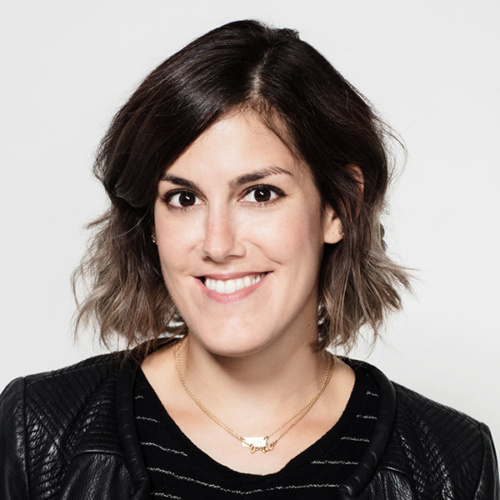
Amanda Krieg Thomas
Amanda Krieg Thomas has been working tirelessly in the field of music supervision for over a decade, collaborating with top-level creators on a wide range of projects from unscripted docu-series to critically-acclaimed cable dramas and everything in between.
Current projects include new seasons of white-hot dramedy Claws (TNT), break-out ballroom drama Pose (FX) and thrilling network drama, 9-1-1 (Fox), as well as Ryan Murphy’s first two projects for Netflix, feminist horror series, Ratched and satirical comedy, The Politician.
Most recently Amanda worked on the award-winning espionage drama, The Americans (FX), celebrated limited series, The Assassination of Gianni Versace: American Crime Story (FX), American Horror Story: Apocalypse (FX), family comedy, Life In Pieces (CBS) and legal thriller, Proven Innocent (Fox). Last year she also served as Music Supervisor on the emotional thriller Reverie (NBC) and Sundance darling Madeline’s Madeline (Oscilloscope). Additional credits include Feud: Bette and Joan (FX), Scream Queens (Fox), indie features Billy Boy and Girl Flu, and The People vs. O.J. Simpson: American Crime Story (FX).
Amanda began her career in the music department at Lionsgate, before moving to Reveille (now Endemol Shine North America). There she music supervised unscripted series Commercial Kings (IFC) and One Born Every Minute (Lifetime) in addition to serving as Music Manager on the long-running hits MasterChef (Fox) and The Biggest Loser (NBC). In early 2012 she joined Format Entertainment as Music Coordinator on projects such as Pitch Perfect 1 and 2 (Gold Circle Films/Universal), The Other Woman (Fox), Beyond The Lights (Relativity), and ABC comedy, Trophy Wife, before transitioning to a Music Supervisor role at the company. Highlights there include performance competition show, Fake Off (truTV), the 2015 American Girl Girl Of The Year™ film, Grace Stirs Up Success (American Girl/Mattel), and indie film French Dirty (Homegrown Pictures). In 2015 Amanda dove back into the world of scripted television at Neophonic Music & Media, and in early 2019 she launched her own music supervision company, Yay Team Productions, Inc.
Amanda regularly shares her knowledge at conferences and events around the world, including South By Southwest, MUSEXPO, BIGSOUND Australia, and the Durango Songwriters Expo, in addition to authoring the e-book Thinking In Sync: A Primer on the Mind of a Music Supervisor. She is a proud member of the Television Academy and a Board Member for the Guild of Music Supervisors.
